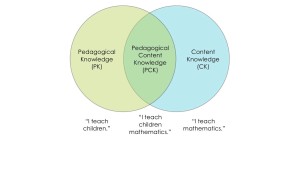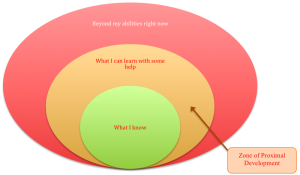What Makes a Teacher Effective?
That’s the question that is asked and answered in Chapter 6 of Those Who Can, Teach. There’s a lot of great information here so I will be sharing it in parts.
I’ll start with all the different terms that are defined.
Reflective teaching is a process of self-examination and evaluation. To me, it’s the only way to grow as a teacher. I think I’ve blogged about this earlier but here are a few questions to ask yourself at the end of a lesson, quarter, or semester.
- What am I doing and why?
- How can I better meet my students’ needs?
- What are some alternative learning activities to achieve these objectives?
- How could I have encouraged more involvement or learning on the part of the students?
Participant observation is a method of developing self-understanding. It’s actually one of the things we’re assigned to do in this Intro to Education class. The textbook defines it as, “the process of observing a class and recording what you hear, see, and feel as you observe.” It then talks about comparing your notes with other observers. That’s something all the student blogs can be used for!
There’s a section that talks about teacher expectations and self-fulfilling prophecy. The gist here is that your attitude affects your outcomes.
 Pedagogical content knowledge is just a fancy term for the overlap between knowing the subject and knowing how to teach it. The picture to the left makes this idea pretty clear.
Pedagogical content knowledge is just a fancy term for the overlap between knowing the subject and knowing how to teach it. The picture to the left makes this idea pretty clear.
 Here’s another great infographic that explains the zone of proximal development. This goes hand in hand with scaffolding. By helping a child solve a problem with clues, hints, encouragement, or a reminder of steps or procedures, you are helping them find the answer and build upon previous knowledge.
Here’s another great infographic that explains the zone of proximal development. This goes hand in hand with scaffolding. By helping a child solve a problem with clues, hints, encouragement, or a reminder of steps or procedures, you are helping them find the answer and build upon previous knowledge.
Something that will only come with time and experience is personal practical knowledge. The text says that it includes the beliefs, insights, and habits that allow teachers to do their jobs. You can form beliefs before getting into the classroom and should do so but insights and habits only come with time.
Classroom management is also something that you can have an idea about before getting a class of your own but also something to be changed and perfected over time. It’s basically creating an environment that is conducive to learning and effective teaching.
There’s so much more information in this chapter that I’ll probably be blogging on it all week! Enjoy.